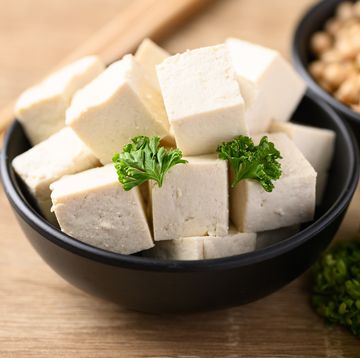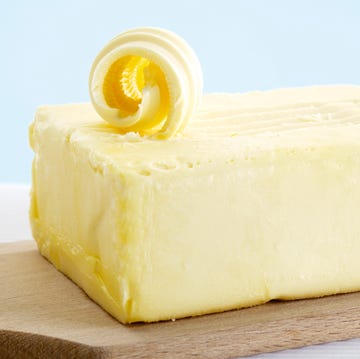Salt is the most important ingredient in your kitchen. It serves several purposes: it helps improve the texture of baked goods, it can tenderize cuts of meat, and its naturally antimicrobial properties have been used to preserve food for millennia.
Its most essential role, however, is its ability to enhance the flavor of food. On its own, it can taste, you know, salty. But it also brings out and highlights the flavors of other ingredients as well. This even applies to desserts. If you’ve ever considered omitting salt from a batch of blueberry muffins, you definitely shouldn’t. The salt actually helps bring out the treat’s natural sweetness.
But maybe you used up all your salt to make a pot of pasta as "salty as the sea." And you accidentally forgot to add it to your shopping list, and now you're out. We’ve all been there.
More From Delish

Running out of salt doesn’t necessarily require a last-minute trip to the grocery store. You can still achieve seasoned, flavorful food without it. Our kitchens are full of ingredients with high salt concentrations—so you should absolutely use them to your benefit.
You can swap salt for these highly seasoned substitutes in nearly every type of recipe. Here are our top picks:
Preserved Fruits And Vegetables
Salt is an effective way to extend the lifespan of fruits and vegetables. Whether they’re packed directly in salt or in a brine, they offer a punchy, heavily seasoned bite.
Common products you can find at the supermarket include olives, capers, pickles, and even lemons. If a recipe already includes similar flavor profiles (like a tangy shrimp scampi, for example) you can easily swap salt for some minced preserved lemon and its brine. Not only will your food be properly seasoned, you also can reinforce the existing ingredients you're already using.
Soy Sauce
You probably have a bottle of soy sauce hanging around your kitchen. Just like this versatile condiment adds salty notes to stir fries and sushi, soy sauce can be used as a stand in for salt in virtually all savory recipes.
Beyond just offering salty notes, soy sauce is a great source of umami. This flavor is essential for making your food taste extra satisfying—which means that adding soy sauce can give your dishes a head start in developing that flavor. The same applies for any similar ingredients like tamari and coconut aminos.
Miso
What great things can we say about miso that we haven’t already? This fermented soybean paste isn’t just limited to soup; we love using it to glaze fish, season roasted vegetables, and even stir into pasta sauce.
And just like with soy sauce, miso offers both salt and umami and can be used in place of Kosher salt in nearly every savory recipe. However, it’s important to properly mix the paste into whatever you’re cooking so you avoid eating a giant mouthful.
Anchovies
These tiny fish pack a lot of flavor in a small package. Anchovies on their own taste like fish, understandably, but a filet or two mixed into a sauce or stew adds a powerful source of salt without an overwhelming seafood flavor.
If you’re cooking and happen to run out of salt, using a few anchovy filets can be a great substitute. Odds are even the pickiest eaters won't notice.
Cheese
We love adding these salty sprinkles to just about everything. From pasta to chicken to garlic bread, just about any recipe can benefit from the savoriness of cheese. And in a pinch, it can also work in place of salt in some recipes!
You’ll want to stick with cheese with a higher salt content. So that means steer away from mozzarella and opt for cheeses like Parmesan, pecorino, and feta.
Cured Meat
Since products like salami, prosciutto, and bacon are preserved with salt, they can be great ingredients to add to recipes when you don’t have salt on hand.
The best way to distribute the salty, fatty goodness of cured meat throughout your dish is to add it to the pan at the beginning of the cooking process. Simply render the fat, then add in the rest of your ingredients as normal.
Salted Butter
Professional chefs everywhere will tell you that you should always use unsalted butter when cooking to avoid accidentally over-salting your food. While we’re inclined to agree, this situation is the one exception.
If you’re out of salt, swapping unsalted butter for its seasoned sibling is a great way to adapt recipes without needing to add extra ingredients. This substitution is especially useful in baking recipes, since introducing other products can change the final result.
Gabby Romero is Delish’s editorial assistant, where she writes stories about the latest TikTok trends, develops recipes, and answers any and all of your cooking-related questions. She loves eating spicy food, collecting cookbooks, and adding a mountain of Parmesan to any dish she can.












